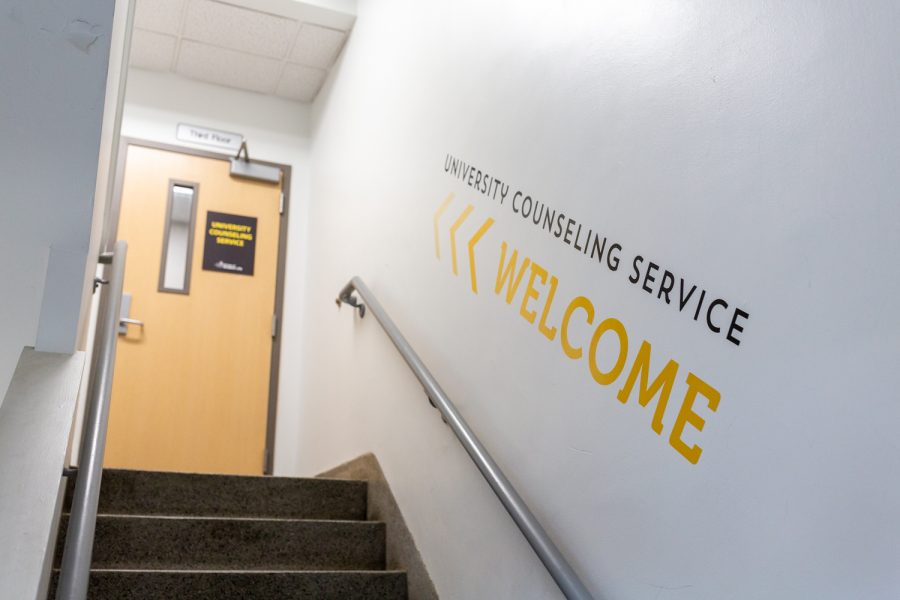UI launches suicide prevention program to entire campus after positive feedback from first-years
The University of Iowa will expand the Kognito suicide prevention training to the rest of campus after hearing positive feedback from first-year students who took it as part of Success at Iowa.
Westlawn Hall at the University of Iowa is seen on Wednesday, Oct. 3, 2018. Westlawn is the location of University Counseling Services.
October 17, 2019
As students on campuses across the country manage mental health, the Kognito program at the University of Iowa is aiming to teach people how to help those who are struggling.
The UI will expand the use of Kognito, an interactive suicide prevention program, to the rest of campus after receiving positive reactions from students who took it in Success at Iowa, a required online course for new students.
So far, 5,500 students have taken the training, and the UI plans to market the program to the rest of campus through talking to staff, Faculty Senate, Faculty Council, University of Iowa Student Government, and Graduate and Professional Student Government, said Barry Schreier, the director of University Counseling Services.
Kognito is an avatar-based program that gives responses based on the participants’ decisions and feedback to help users understand what they handled well and what they didn’t, Schreier said. Unlike sitting and watching a video or reading through a PowerPoint, Kognito allows users to immerse themselves in the training, he said.
RELATED:UI researchers find potential link between DNA changes and suicidal behavior
Data from counseling centers on campuses across the country have reported that about 15 percent of the students who completed suicide on campus talked to a professional about it beforehand, Schreier said.
“We turn to people we know when we want to talk about stuff, so if we can train people up to recognize distress, know how to interact with it, and then offer resources…. so that’s why we’re doing it, is to sort of make this a community of care,” Schreier said.
The program has two modules, one for staff and one for students, Schreier said. The student module is students helping fellow students, and the staff module is staff and faculty helping students, he said.
Suicide is the second leading cause of death for people between 10-34 years old, according to a 2017 report from the Center for Disease Control and Prevention.
As previously reported by The Daily Iowan, the Kognito program was paid for by UI Housing and Dining, UISG, and University Counseling Services.
RELATED: UISG votes to support new mental-health initiatives
UI Housing and Dining agreed to pay for the program because it was seen as an important resource for raising student awareness around mental health and suicide prevention, Greg Thompson, director of residence education, wrote in an email to The Daily Iowan.
“I think most students are eager to know how they can continue to support their friends and fellow students if they are in a mental health crisis or contemplating suicide,” Thompson said. “Kognito helps those students feel more confident about ways they can support and assist other students or themselves in getting paired with resources that may be helpful.”
UISG President Noel Mills said she wants to promote the program across campus and make it as visible as possible. Organization members plan to include the program at the top of the next UISG newsletter as well as work on creating a video explaining what the program is, Mills said.
“If it saves one life, one in the 10 or 12 years that this program might last, that’s worth it,” Mills said. “We should be doing everything we can within reason to make sure that students aren’t forced into a situation in which they’re contemplating whether or not they want to live.”















